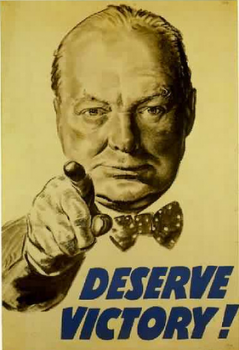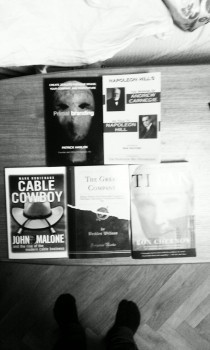Ludvig Sunström's Blog, page 9
May 15, 2015
“Enter the Gauntlet”
In medieval Japan there was something called Musha shugyō: a samurai’s path to mastery. Here’s how it used to work. . . A young man, wanting to become a samurai, embarked on a journey–like a religious pilgrimage, a rite of passage–in order to test his mettle, learn strategy, challenge other warriors in duels, and buildContinue Reading...
"The post “Enter the Gauntlet” appeared first on StartGainingMomentum"
April 29, 2015
I Made Fun of the Law of Attraction And Here’s What Happened
What if I told you I had found an easy way to get rich and successful–would you be interested in knowing more? Sure you would. Alright, I will indulge your curiosity. Here’s what I’d do. . . I’d tell people whatever they wanted to hear. I’d tell every guy he was a badass. Even ifContinue Reading...
"The post I Made Fun of the Law of Attraction And Here’s What Happened appeared first on StartGainingMomentum"
April 12, 2015
How to Be Real in a World of Fakes
It strikes me that modern men are a lot like insects. You see, many insects protect themselves by mimicking the appearance of ‘badder insects’, the sort that you don’t want to mess with. For example, flies try to look like bees or wasps. In evolutionary biology this is called mimicry. Wikipedia defines mimicry as “aContinue Reading...
"The post How to Be Real in a World of Fakes appeared first on StartGainingMomentum"
March 23, 2015
Worldly Wisdom from Lee Kuan Yew: 9 Lessons You Can Learn from LKY
Friends, today is a sad day. One of the greatest men of the 20th (and 21st) century, a political genius, died today: Lee Kuan Yew. He became 91 years old, and remained sharp as a tack to his last breath. Who was Lee Kuan Yew? Everyone knows about Nelson Mandela, Gandhi, or Deng Xiaoping. FewContinue Reading...
"The post Worldly Wisdom from Lee Kuan Yew: 9 Lessons You Can Learn from LKY appeared first on StartGainingMomentum"
March 11, 2015
The Intelligent Man’s Guide to: Consumerism (Part 4: The Confused Consumer)
Once upon a time, James Bond was a genuine badass. Now, James Bond is only a symbol of manliness for the confused consumer, who doesn’t have any better role models in his life. The newer James Bond movies, with Pierce Brosnan and Daniel Craig, may have turned out great–had they not been jam-packed with not-so-subtleContinue Reading...
"The post The Intelligent Man’s Guide to: Consumerism (Part 4: The Confused Consumer) appeared first on StartGainingMomentum"
February 28, 2015
The Intelligent Man’s Guide to: Consumerism (Part 3: Brands and Social Deception)
Would you like to “put a tiger in your tank”? You see, I don’t own a car. That’s why I’m asking. Anyway, it turns out a lot of people were indeed interested in putting tigers in their tanks. Surprisingly many! Why is that? That’s for Ernest Dichter to know, and for you to find out.Continue Reading...
"The post The Intelligent Man’s Guide to: Consumerism (Part 3: Brands and Social Deception) appeared first on StartGainingMomentum"
February 18, 2015
The Intelligent Man’s Guide to: Consumerism (Part 2: Progressive Obsolescence & The Secret Power of Women)
This ad (to the right) is highly “incorrect” in modern consumer culture. But that wasn’t the case 50+ years ago. Although it wasn’t her intention, Christine Frederick is responsible for this gradual change in culture (and advertising). Christine Frederick was a home economist, editor of multiple papers and an advertising research expert who specialized inContinue Reading...
"The post The Intelligent Man’s Guide to: Consumerism (Part 2: Progressive Obsolescence & The Secret Power of Women) appeared first on StartGainingMomentum"
February 14, 2015
The Intelligent Man’s Guide to: Consumerism (Part 1: PR and Advertising)
Alternative title: How Culture Got Hijacked to Sell You a Bunch of Stuff You Don’t Need Breakfast was invented to sell bacon. The catchphrase used–and regurgitated by all the confused consumers–was the necessity of getting a “full and hearty breakfast” each morning. This happened in the 1920s. Later breakfast was reinvented to sell cereal. TheContinue Reading...
"The post The Intelligent Man’s Guide to: Consumerism (Part 1: PR and Advertising) appeared first on StartGainingMomentum"
January 5, 2015
How to Write Your Strategic Objective
 I don’t want to be a product of my environment.
I don’t want to be a product of my environment.
. . . And neither do you.
I want my environment to be a product of ME.
. . . And so do you.
Because I feel this way I have now put together my strategic objective for 2015. I have created two copies of my strategic objective; one for my commonplace and another in physical format.
I wrote the former copy in case I want to reformulate the strategic objective, and the latter copy I wrote for the sake of creating psychological investment.
I know you’re wondering what a strategic objective is. . .
. . .But slow down, I will tell you in a minute. First, let me ask you a question:
How is Your Life Compared to 1+ Year Ago?
Answer: Your life is probably different. . .
New friends, new knowledge, new habits.
Different expectations, different opportunities, different ideas.
But you probably don’t fully appreciate the extent of this change.
Why is this?
It’s because. . .
You’re immersed in the “now” and your brain is not made for perceiving slow and incremental change.
But, your brain can easily notice and experience contrast.
So, do you know what I’ve been doing the last few days?

I’ve gone through piles of old notes. Both physical and digital.
Today I went through some old goal-setting documents on my computer, from 2,5 years ago.
I found them in my old–cough–“self-development information system”–cough–made up of categorized folders containing Word documents. The system was really inefficient.
This was before I set up my OneNote commonplace, which is superior in terms of:
a) The ease with which I store and retrieve relevant information
and. . .
b) How I practice and learn new things
. . . which amounts to:
c) More time saved, better productivity and higher quality thinking.
Aside from the suckiness of my old self-development info system, I also noticed. . .
. . . How Much I Sucked
Most of my goals at the time are now long-gone milestones or habits that I don’t even think about. . .
Things like not wasting time on Facebook, social media, or news and entertainment.
Or learning such-and-such a skill, eating this-and-that food more often, detoxifying so-and-so often by fasting, lifting so-and-so much weight, and spending more time with such-and-such people.
But. . . those were my limits, expectations, and goals back then–and they were very much real to me at the time.
I will probably laugh at the level of my current goals 2,5 years into the future.
I hope so.
But right now I feel they are bold and exciting.
One year from now I’ll be better: Faster, harder, stronger.
Improved.
I feel confident saying this because I will focus on my strategic objective.
Let me tell you how you can do the same.
Your Strategic Objective
Your strategic objective is a to-the-point document where you describe specifically what you are doing to accomplish your goals over the next year.
Your strategic objective is the system that ensures you know what you will do, how you will do it and when you will do it.
Your strategic objective should be brief; keep it to one page, or you won’t bother re-reading it. . .
. . . Which is what you’re going to do a minimum of once a week.
The reason you’re going to do this is because it will keep you focused on the big picture, and not on what Susie said in the lunch line earlier today.
By remaining focused you’re able to learn from mistakes and course-correct faster when you veer off-path and waste time or engage in bullshit activities that do not add any value or build towards your goals.
Your strategic objective will contain 3 elements:
Goals
Maxims
Best practices
Let’s talk about each of these elements–goals, maxims and best practices–starting with. . .
Your Maxims & Best Practices
Maxims are guiding principles that you base your every action on.
A person who does not have any maxims is a soft, weak, and sloppy person who lacks direction in life.
A person who does not have any maxims will suffer from uncertainty, decision anxiety and low self-esteem.
A person who does not have any maxims will always look to a person who does have a code of maxims to guide his or her actions and behavior. . .
. . .Someone like yourself.
Your maxims make up your personal ethos.
When you’re writing down your maxims for 2015, take this into account:
What are the most important “truths” for success that I know?
Random examples:
Contrarianism: If everyone else does a thing you will do something different and profit from the law of contrast.
Newton’s Third Law: For every action there is an equal and opposite reaction (abide by the law of compensation).
Higher Order Consequences: Every action has a ripple effect. Make sure it’s positive by fixing root causes.
Personal Initiative: Nothing is more important in business and career.
Don’t Mistake Cause for Effect: Like learning, for example. Reading 80 books is an indicator that you have learned a lot, but that does not necessarily have to be true (quantity is not an indicator of quality).
Practice Gratitude: Because it is one of the few fundamental ways to consistently become more happy.
Practice Focus over Multitasking: Another fundamental way to become more happy–and more efficient.
Homeostasis: Change is perceived as the enemy. Change is not comfortable. To be the best you must initially FORCE yourself to adapt.
Now, let’s talk about best practices.
Best practices are methods , techniques and principles for doing something that have been proven to give superior results.
A person who does not follow best practices is. . . Well, an _______ person.
Yet, most people don’t follow–or even have–any best practices.
The reason for this is because it takes time and energy to get used to doing things in another way than you’re used to doing them.
What is the best way of overcoming this obstacle?
Bingo. You guessed it: By turning best practices into habits.
So, when you sit down to write your best practices, keep this in mind:
What are the most important habits [behavior] and mindsets [thought patterns] that I need to take on to improve my life and reach my goals?
Random examples:
Double-check everything.
Practice timeliness and punctuality
Mentally rehearse and visualize the next day before sleep
Over-deliver value and do it with enthusiasm
Don’t drink alcohol in combination with food
Meditate in the morning and night
Don’t trust short-term memory; always write it down
Your maxims are not goals: they are principles on which you guide your actions to make sure you are steadily progressing in a suitable manner.
Your best practices can be goals: they are behaviors, thoughts and actions you must routinely practice to reach goals and improve your life.
Sometimes there is a fine line between a maxim and a best practice. But as long as you understand what they’re for–what their purpose is–that doesn’t matter.
If it helps–and it does for me–you should arrange your maxims and best practices into categories like productivity, career, fitness and health, accurate thinking, and so forth.
O.K. . . now that we’ve cleared that up, let’s talk about. . .

Your Goals
Just as there is a fine line between maxims and best practices, there’s also a very fine line between education, indoctrination, and brainwashing.
I recently found a few old children’s grammar books I’d used in school when I first learned to spell. Spelling out different words and sentences, you know?
When I looked through these books I got angry. . .
Angry at the overlords of the Swedish educational system.
Because, most of the sentences I’d written were of two types:
Socialist, loser-mentality, type affirmations:
“No one can do anything alone, we must all work together.”
“I’m a nobody, nobody is perfect, and therefore I’m perfect.”
“Don’t think that you are better than someone else.“
And old proverb-type affirmations way above the head of a child:
“No man is an island.”
“The man who treats his donkey well will benefit from its help longer.”
“One bird in the hand is better than two birds in the bush.”
What’s the big problem here?
How is this bad?
Why did this anger me?
It angered me because, obviously, the architects of the school system care more about trying to indoctrinate young children than they care about trying to educate them efficiently.
Instead of making it so that the content in the grammar books is more efficient by using sentences that are relevant to the children’s lives, and easy to understand, they used difficult sentences–sentences that barely even make sense to an adult. . .
. . . To any intelligent and ambitious adult, that is.
Instead of pacing the level of difficulty to start off easy, and incrementally stepping it up to more challenging sentences, the sentences were of the same length and difficulty all throughout the book. And none made sense.
I noticed that my writing followed the same pattern in all those books.
The first half of the books was filled with those bullshit sentences. It started out looking proper, with the sentences written well within the lines and all that. And then–the longer into the first half of the book I got–the writing got gradually sloppier.
Until something different happened. . .
I had finished maybe half the book spelling out those socialist sentences, then I’d abruptly GIVEN UP and started writing my own sentences instead.
I was a rebel even back then.
I had abruptly given up because what I was doing didn’t make any sense to me–so I got bored and lost interest. This had happened because my brain could not answer the question “Why–why am I doing this?”
My own sentences were cooler. They consisted mostly of cuss words about my brothers and descriptions of characters in video games.
Why am I telling you this?
Because proper goal-setting follows the same principles. . .
. . . The very same principles that the school system had so brutally violated.
Goal-setting should be:
Adjusted to your own level of understanding (relevance)
Paced to your current level of motivation (difficulty)
Repeated and visualized consistently to become self-fueling (brainwashing)
Goal-setting should also be:
Made measurable (what gets measured gets done)
Made actionable by setting a daily minimum quota of work
Made so that, if possible, it involves a visual element to trick your brain that the goal is not only doable, but already a reality

(This is what SGM’s Alexa Rank will be one year from now.
A bold goal? Perhaps. Two years ago SGM had no readership at all.
-
This is the Only Goal-Setting System You’ll Ever Need
I have never had any problems coming up with interesting goals for what I want to do. But up until I was around 20 years old I often set unrealistic goals.
I didn’t understand how to pace and adjust–and I didn’t know my limits, my “circle of competence”, as Warren Buffett and Charlie Munger call it.
I just thought “Ok, now I’ve set a goal and maybe I’ll do it”.
But maybe means NEVER.
My goals weren’t goals. They were unlikely future scenarios. That’s why I rarely hit them–and THAT’S why I failed to tap into the winner effect and get the ball rolling.
My self-development never got much momentum before I was 20 years old because it was not until then that I started forming a consistent track record of achieving goals.
I wasn’t accountable to anyone.
Nor did I have an intelligent system to follow for organizing my efforts.
But you do now.
There are no excuses.
So take the time to write out your strategic objective.
It’s demanding mental work, but it IS worth it.
And Make Learning a Priority
Or suffer the consequences.
Remind yourself of the following–often:
Your job is not really your job.
Your job is learning new things (and using them).
Your schooling is not necessarily your education.
Your personal studies are.

Not only should you invest time in learning new things, but you should also be sharpening up your ability to learn.: Your framework for learning must improve.
You should look at your life span as divided into multiple parts connecting with each other like this:
—– X—– X—– X—– X—– X—– X—–
Where different parts of your life are conducive towards different means.
Andrew Carnegie said that a man should devote a third of his life to education. He was right.
Carnegie was intuitively right about a lot of things; like the brain’s formation of habits and how memories are formed and stored in the brain.
It is now more or less a fact that the brain, especially the prefrontal cortex (associated with learning, willpower, decision-making, concentration) is the most plastic–changeable–until sometime around age 30.
Edison said that if a man does not form the habit of thinking early in life, he probably will not want to do it later.
My experience confirms this.

A few of the books I got for Christmas. I have read two so far.
Most people make all the wrong choices before age 30.
Don’t be one of them.
You must become smarter; able to converse competently with people on a wider range of topics–and thereby enabling you to spot hidden opportunities and possible synergies (win-win situations).
The habit of continuous learning is the #1 factor that sets one person apart from another over a longer period of time.
Nothing boosts upward mobility faster.
You must create a reading schedule for 2015. I have 44 good books mapped out and scheduled to read so far–and counting. Do you?
If not, you can find inspiration for good books here and here.
Think Long-Term, Think Bigger (don’t be a fool!)
I get emails from people who say this and that, as if they were trying to prove something to me. They say they’re super serious about self-development, learning things, and becoming smarter. . .
. . . But they give excuses for why it cannot be done.
Guess what they do instead?
They tell me how they’re too busy masturbating (that’s not really what they tell me) to take an hour out of their day to read and learn new things.
But there are no excuses. Learning is #1.
If you cannot carve out 1+ hour per day to INVEST in your brain, you’re not prioritizing correctly . .
. . . Unless you’re a prostitute–and your brain doesn’t matter.
If you’re extremely busy, do this:
Bring a book with you at all times. Stephen King brings books to the doctor, or when he’s standing in line at the grocery store.
Listen to audio books or podcasts while walking or commuting.
And if you’re poor: Go to the library.

I do it–and I’m not poor.
I’m just frugal.
If you cannot motivate yourself to do any of these things, well, then you’re grossly ignorant as far as the benefits of learning new things go.
You must think beyond the immediate–short-term–benefits of learning.
I have potential million-dollar ideas in my commonplace. . .
. . . Potential being the key word.
Ideas mean little without execution.
Only the best people can make their ideas matter.
There are several benefits of reading (learning):
To spark your thinking
To keep your brain healthy
To practice your pattern recognition
To improve your imagination
To insert someone into your Dunbar’s Number
I could go on. . .
But I won’t.
Even if I have more important/urgent things to do other than reading, I still start the morning by reading. Why?
Because reading first thing in the morning warms up my brain and brings unexpected positive side effects.
Maybe I am special?
I doubt it.
You should try it.
How to Blast Off for 2015:
Start by investing a day to create your strategic objective:
Write out your goals
Write out your maxims and best practices
Maybe even write two copies, for the sake of psychological investment.
Your strategic objective will bring order to your life and “tighten you up” as time goes by. When 2016 hits you’ll be You 2.0; sharper, stronger, smarter.
Speaking of smarter. . .
Prioritize learning.
Create a list of interesting and useful books to read and learn from during 2015 and set a hierarchy to their importance.
Then start reading them, and as you do that, make an effort to continually improve your framework for learning as you go along. Revise how you do things ASAP when you spot weakness or find a way to improve.
Here’s a tip if you’re struggling with the maxims and best practices. . .
Your brain is better at eliminating choices than it is at selecting them.
So write down as many maxims & best practices as you can think of, take a break, and continue. When you feel you’re done, take another break. When you come back–with a fresh mind–strikeout the maxims and best practices that you’re already familiar with, already putting to use in your life. This leaves you with the ones that require your focus the most. Because. . .
If you have more than 100 of them, you’re not focusing; you’re multitasking.
Consider the following. . .
 A rocket can blast off only because someone like Elon Musk organized a team of smart engineers to set it up that way.
A rocket can blast off only because someone like Elon Musk organized a team of smart engineers to set it up that way.
You can blast off only by being someone who organizes his strategic objective and sets his priorities straight.
Your strategic objective is going to ensure that you know what you will do, how you will do it and when you will do it.
Now write it out.
Photo credit: Planet Science
The post How to Write Your Strategic Objective appeared first on StartGainingMomentum.
December 15, 2014
The Intelligent Man’s Guide to: Mainstream Media And Mass Culture
 “No. . . I don’t like this! Why can’t there be any happy news? This is no fun.”
“No. . . I don’t like this! Why can’t there be any happy news? This is no fun.”
So said: (a) Britney Spears or (b) Robin Williams or (c) Nelson Mandela.
The correct answer is none of the above.
It was said by. . .
. . . a girl that lived in my corridor when I studied at university.
Right after she said it she changed the channel to watch some show about rich housewives that lived in New Jersey. That made her happy again.
I considered whether I should explain to her in detail why there can’t be any happy news. But I quickly realized that her (very limited) attention span would be an insurmountable obstacle. I decided it wasn’t worth the effort and said: “I don’t know”. Then I went back to my room, where I could avoid exposing myself to the gossip of the “glamorous” housewives.
A couple of days later I found the same girl in the kitchen again.
This time she was hanging out with a friend. They were watching some reality show. Their conversation went something like this:
Girl 1: “I’ve been to work today, now I deserve to relax. I don’t want to think anymore. This show is really good for that!”
Girl 2: “Yes totally. I have studied biology all day, can’t I get a break?”
Girl 1: “Yeah exactly. I know I shouldn’t be watching this show, it’s kind of stupid, right? But I like it — I think it’s fun.”
Girl 2: “Yeah, sometimes you just don’t want to do anything. What’s wrong with that?
Girl 1: “There’s nothing wrong with that, I think that. . .”
And then they started talking about the characters on the TV show. First they mocked them and laughed at their shallowness then, subtly, their conversation shifted into petty gossip, just like those housewives they were watching.
They did not see the irony in this.
Nor did they realize that they were rationalizing and defending their “right” not to think and to act akratic – against their own interest and better knowing — by choosing to watch the show.
The funny thing is that those girls believed they were (intellectually) superior to other people because they attended university.
I’m not saying they were particularly stupid or anything, actually. . .
They are just average; average in terms of intelligence and average in terms of the ideas, stereotypes and beliefs they have.
They Are Products of Mass Culture
Products of the mass media.
And maybe you will be too, unless you take drastic actions to prevent it from happening.
When you have the same inputs for information as everyone else, you become like everyone else: A mass-produced average.
And when you watch a lot of TV you become stupid.
I’m not kidding.
Let me explain.
I haven’t had a TV since I lived at home and was 18 (I’m now 23) and whenever I watch TV nowadays it sends shivers down my spine, in an uncomfortable way. Because I know what TV does to people.
When I was younger I had no idea because:
I was socially conditioned from immersing myself in TV-watching every day (I had no other reference point) and;
I wasn’t as well-read as I am now
But I know now — and I’m going to tell you what I decided NOT to tell that girl in my corridor when she asked me “why there can’t be any happy news”.
Let’s start with. . .
The Nature of News
What is “news”?
News is stories told to a group of people. Hopefully the people listening haven’t heard the stories before.
Maybe, at some point in history, news used to be just that — news.
But for a very long time “news” has been nothing but entertainment, propaganda, or marketing and sales messages. Let me define each one for you:
Entertainment is. . .
Anything to keep your attention. To keep you stimulated enough to continue reading, watching or listening.
Propaganda is. . .
Anything to shape your opinion on a certain topic. News disguised as propaganda is commonplace in countries like the U.S, China, and particularly in North Korea.
[15:41 –17:10]
Marketing & sales message are. . .
Anything you’re shown that exposes you to a company in a positive way to increase the likelihood that you’ll like, or want to buy, a product or service. In the US there is a fine line between standard commercials and marketing or sales messages disguised as “news” or TV shows. Other countries, like Sweden, have stricter rules.
Who tells you the “news”?
An anchorman or anchorwoman dressed in a good suit so that you will listen (respectfully) to what he or she has to say. Even if that person is Ron Burgundy.
These people don’t get their jobs because they’re smart. They get their job based on the following qualities:
Good looks
Pleasant voice (woman) or authoritarian voice (man)
Ability to read text on a teleprompter and repeat the words they read with conviction, as if they had thought it up themselves
Why do they tell you the “news”?
Because “news” makes for good TV. And because they were hired to do that by the people who own the networks.
Why do the owners hire (famous) news anchors?
Because they realized that people prefer listening to, and trust, the people they’re familiar with.
If there’s a new person telling the “news” every single time there will be no familiarity. People would pay less attention — which equates to less profits and influence for the owners. It would be bad business.
Why does “news” make for good TV?
Because it appeals to a large and diverse target group of people.
And because “news” fills two basic needs for these viewers:
The need to feel and believe that they’re doing something meaningful
The need to indulge their curiosity for learning new things
But it does this in a negative way by tricking them that they’re doing something useful, when — in reality — they’re only being entertained, influenced, or sold on something. Ayn Rand describes this in Fountainhead when she has her media mogul character Gail Wynand say:
“If you make people perform a noble duty, it bores them,” said Wynand. “If you make them indulge themselves, it shames them. But combine the two — and you’ve got them.”
The “noble duty” is for the average person to feel like he is being a good citizen by watching the news to keep himself informed on worldly events.
The “indulgence” is what I call entertainment news.
Entertainment news is like yogurt. Who buys yogurt? Fat people who want to lose weight but don’t know much about nutrition. They think yogurt is healthy because a lot of people told them so.

The post The Intelligent Man’s Guide to: Mainstream Media And Mass Culture appeared first on StartGainingMomentum.



